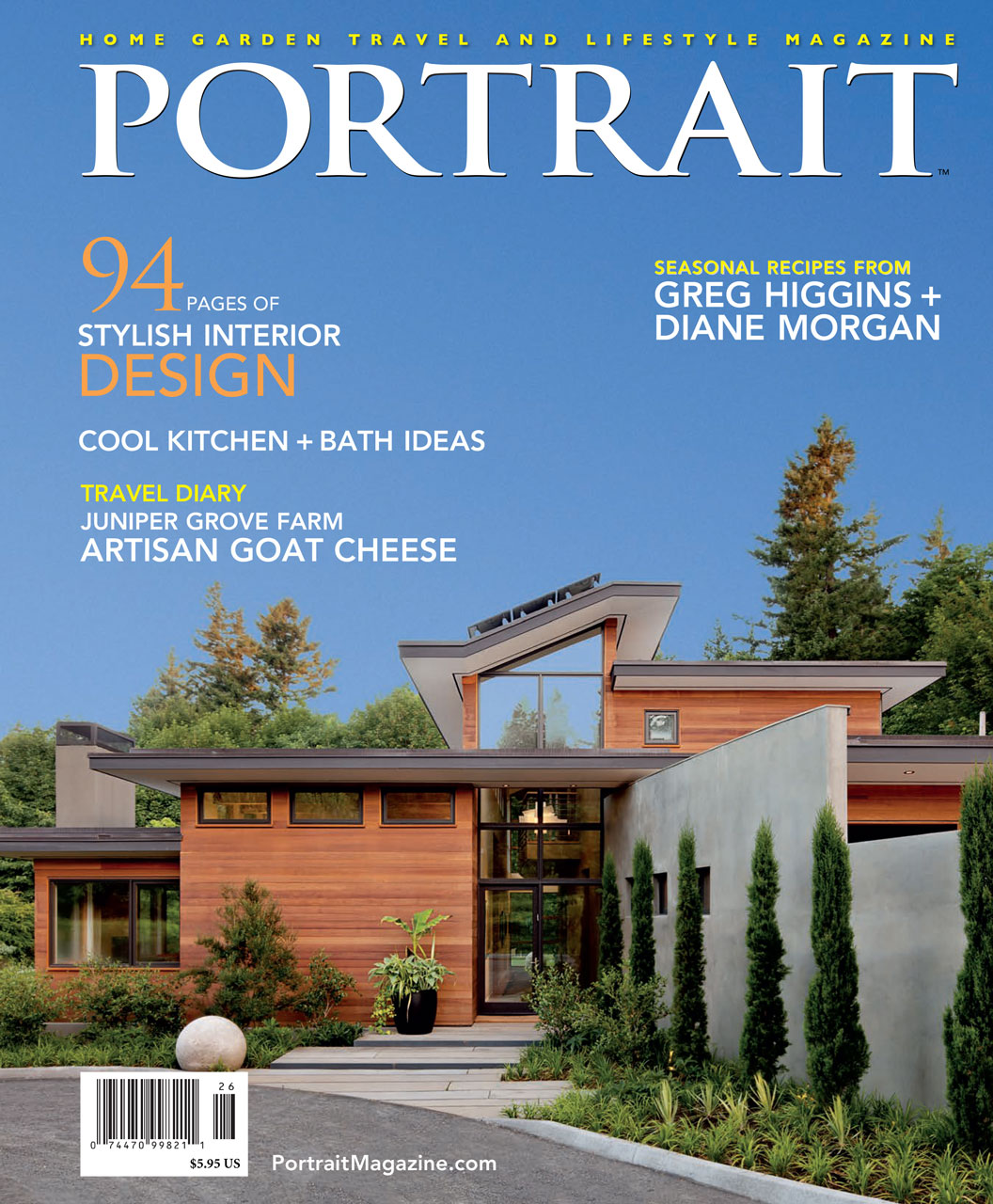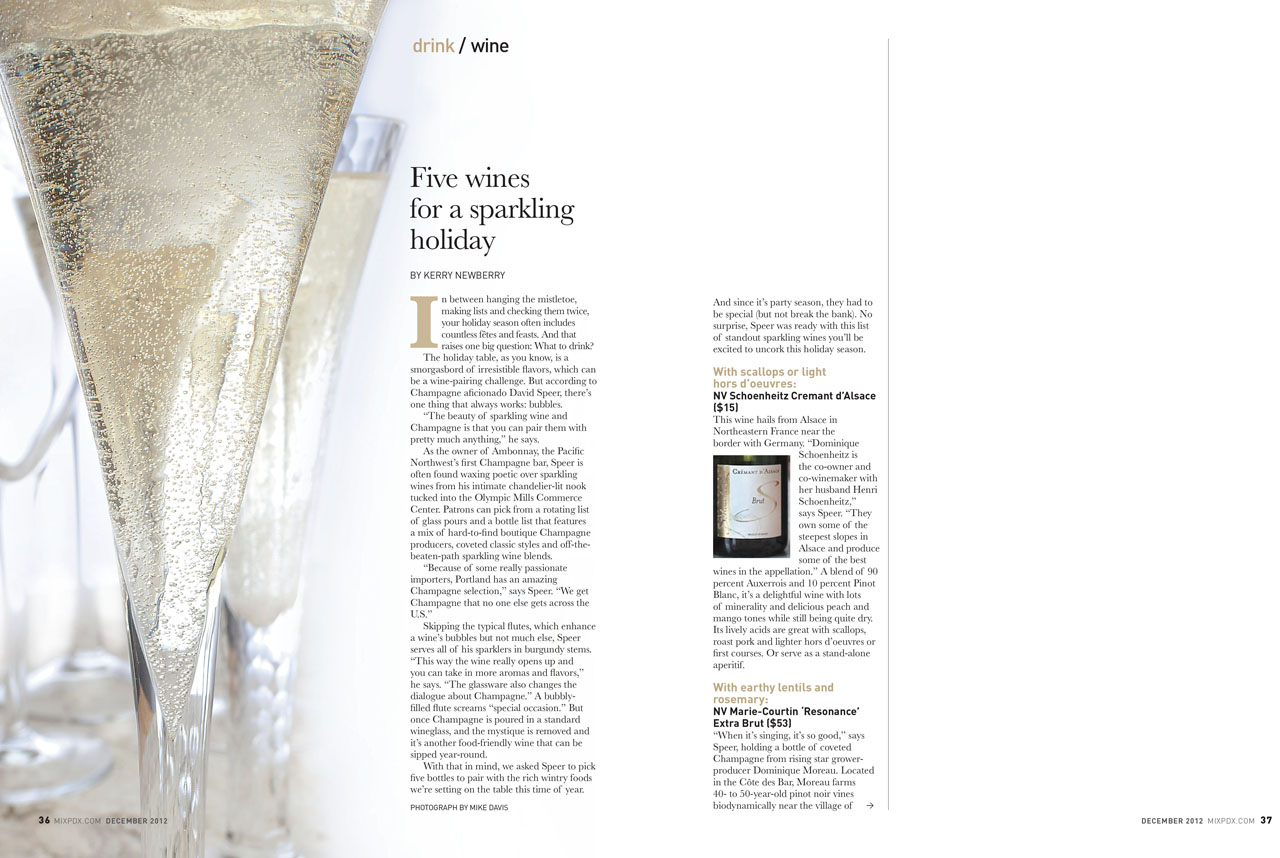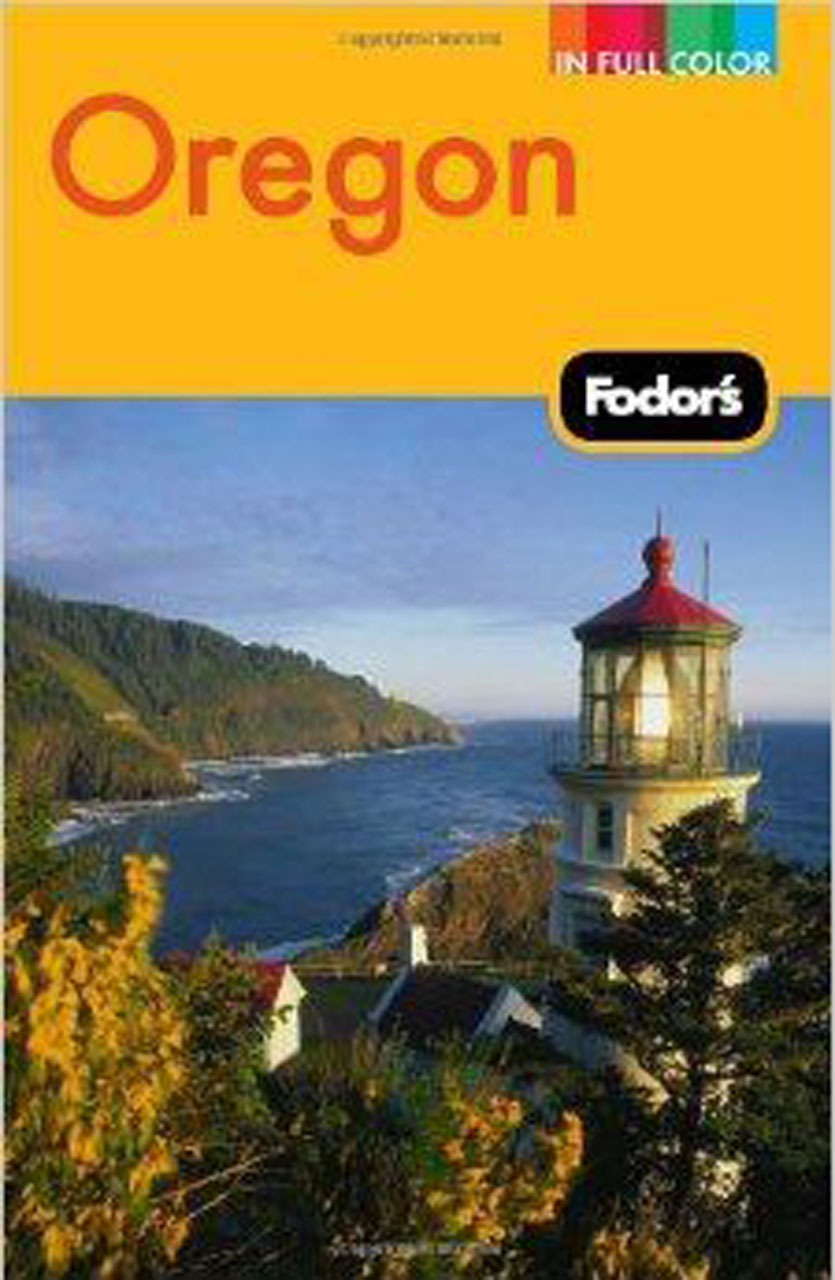Profile of Pierre Kolisch, Juniper Grove Farm

Portrait of Portland, Summer 2013
The sky is azure blue and endless. Elegant pine trees splash green against the backdrop of copper-hued mountain peaks. A simple wooden sign reads: Juniper Grove Farm. Tucked on the eastern side of the Cascade Range in the heart of Central Oregon, Pierre Kolisch crafts classic, French-inspired goat cheese.
A pioneer in the Oregon cheese world, when Kolisch established Juniper Grove Farm in 1987, he was the state’s first artisanal goat cheese maker. Today, the state boasts close to 15 artisan goat cheese producers who craft everything from fresh, creamy chèvre to thoughtfully aged cheese.
“Pierre is definitely part of why Oregon has become such a cheese Mecca,” says colleague Gianaclis Caldwell of Pholia Farm in Rogue River. He not only led the way, but inspired others, as well. In the past ten years, Oregon has experienced a sort of cheese renaissance.
Sasha Davies, the author of The Guide to West Coast Cheese remembers a 2006 cross-country tour she and her husband took for a project called Cheese by Hand: Discovering America One Cheese at a Time, visiting 45 American cheese makers.
“I think of Vermont as a state with a reputation for high-quality, beautiful handcrafted cheeses,” she says. After 2006, the impression that she left the Pacific Northwest with was that Oregon and Washington are really nipping at Vermont’s heels in that category. “Not only does Oregon have a lot of growth in cheese making, there are also people that are making really beautiful cheese,” she adds.
Kolisch was one of the first Oregon cheese makers to rise to the top nationally with his fresh and delicately ripened rounds, pyramids and log-shaped buche cheeses—the latter noted for the straw of wheat running horizontally through the middle.
“We are a true farmstead,” says Kolisch. “Which means we start with the raw material, all of our milk comes from our own herd.” The quality of goat cheese starts with the basis of your milk. Since good milk is hard to find, building your own farm (and herd) is often the best option. “If your herd is healthy, you are going to have less problems from the standpoint of production,” says Kolisch.
The Juniper Grove Farm location is ideal raising a healthy herd. The yearly precipitation is very low, and the warm days and cool nights equate to excellent animal health. “From the animal husbandry perspective, the location is conducive to just about any animal,” adds Kolisch. He opted for goats as a new farmer because they are easier to handle and often sparkle with personality.
On any day, the character rings true. Nearby, bearded goats bleat in song, nibble on plants and frolic in the summer breeze. Curious eyes peek from long lashes and ears perk up at passerby. The robust herd, a mix of La Manchas, Saanen, Alpine and Toggenburg, graze the pastures surrounding the dairy year round, and snack on high desert flora, tall grass and alfalfa.
“We also grow feed for our animals,” says Kolisch, who experiments with different types of hay from season to season. “I like making use the land as best as possible,” he says. An attorney turned farmer, Kolisch found his way to cheese making in the most riveting way.
“I was in the middle of a trek in the Himalayas and looking for something different to do,” he says. He fortuitously befriended a group from Switzerland, which inspired his next journey. “Then I got sidetracked in France,” he says. Call it kismet.
In France, he found his way to study cheese making in Normandy with master cheese maker Francois Durand, and also earned a degree at the National Dairy School in Poligny. The apprenticeship with Durand was life changing. “What struck me the most was his absolute unwavering commitment,” says Kolisch. A commitment to quality, land and tradition, all in the name of cheese.
Kolisch’s mentor was first and foremost a dairy farmer. “There was no tradition of cheese making in the family,” he says. The self-taught Durand is now an icon in his region. “He’s kind of a rebel,” says Kolisch of the Frenchman, now making headlines in publications ranging from The New York Times to NPR heralding him as the last dairy farmer in Normandy to be commercially making Camembert cheese in the traditional way.
“You have to be a romantic to invest yourself, your money, and your time in cheese,” wrote chef Anthony Bourdain in his book Medium Raw. Whether it romance or passion, the pursuit of cheese making is both an art and a science–even a lifestyle.
There is no typical day, says Kolisch. He can be found dressed in pristine whites, measuring and stirring in his cheese room one day, then off to markets the next. “I hope to get on a tractor this afternoon and clip some tall grass,” he says.
Like his mentor, Kolisch is content in the community to be known as the local cheese maker. He doesn’t enter cheese competitions and prefers the local markets to the larger cities. He enjoys his farm and his animals. As for the lifestyle, “I like the independence,” he says.
The land his goats roam is rich with volcanic soils, the scent of sagebrush and mountain sunshine. These natural elements are found in the fruits from the farm–the fromage blanc, aromatic with fresh perennial herbs and garlic from the onsite herb garden; the Duthman’s Flat, a mold-ripened chèvre named after the snow-covered plain below Mt. Bachelor.
Similar to wine, cheese can have what the French call terroir, or a taste of place. The cheese Kolisch crafts is ritual, place and time—found only in Oregon.
















 Some favorite places in San Panch
Some favorite places in San Panch
